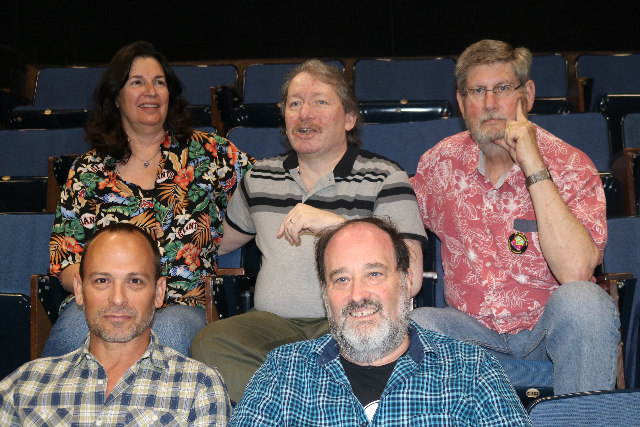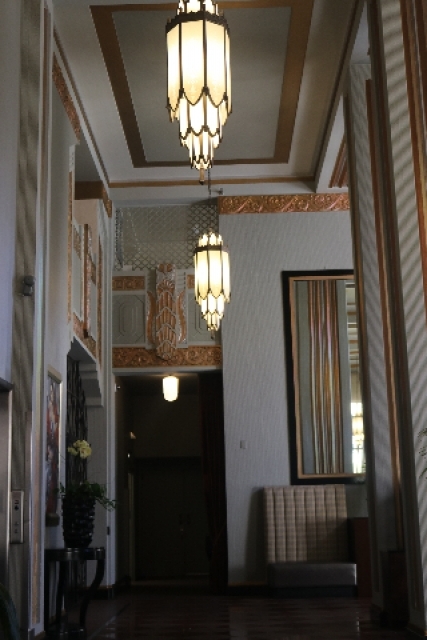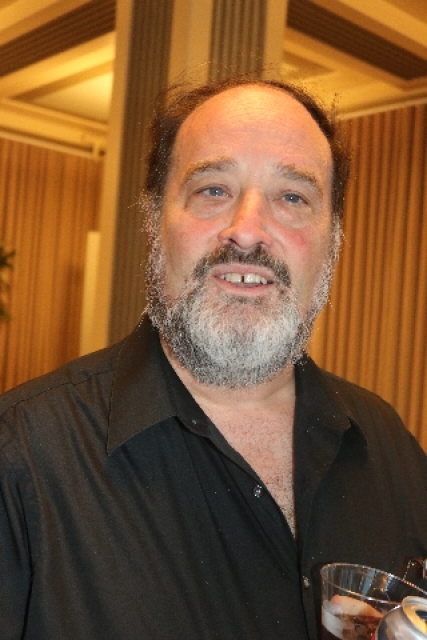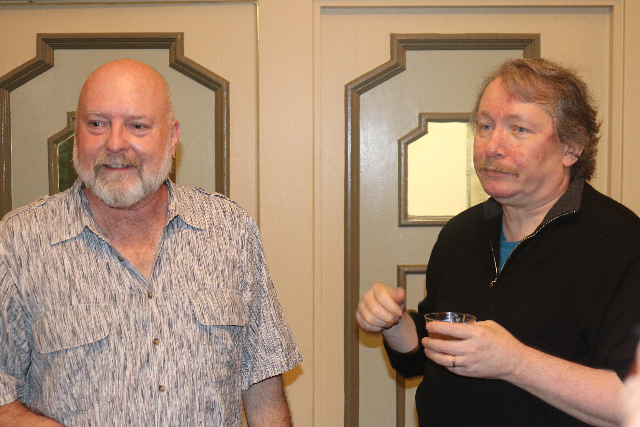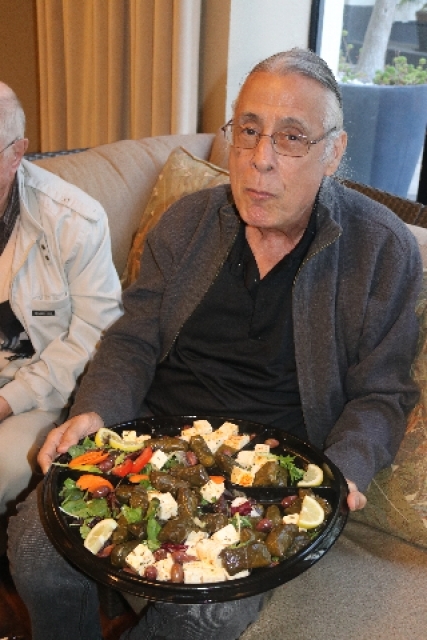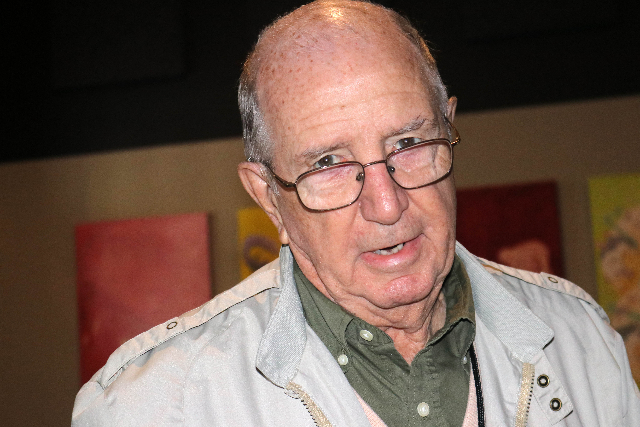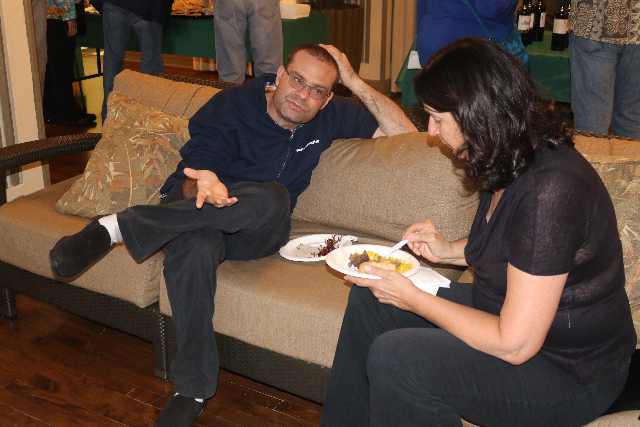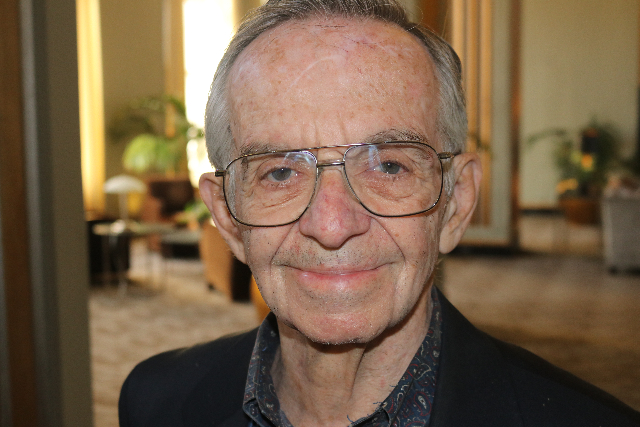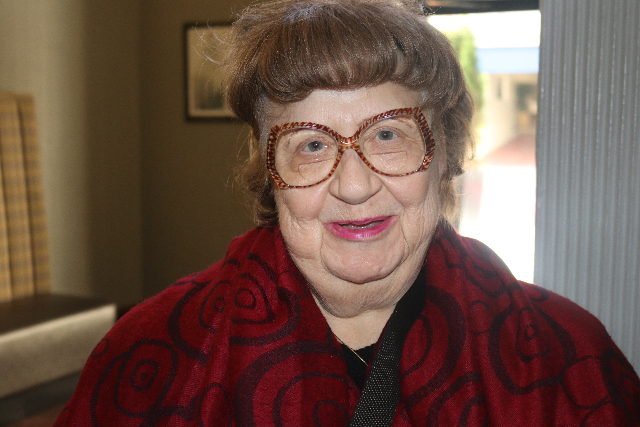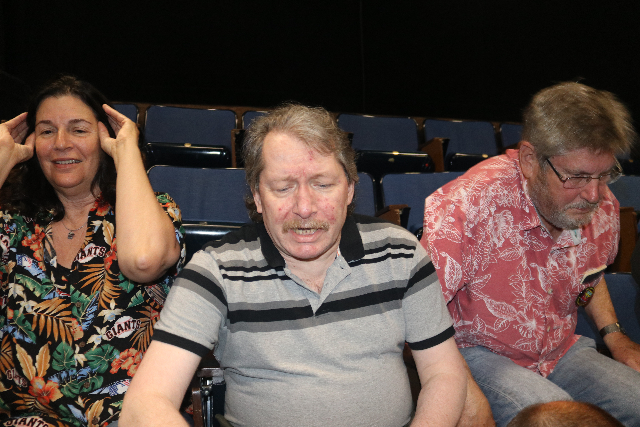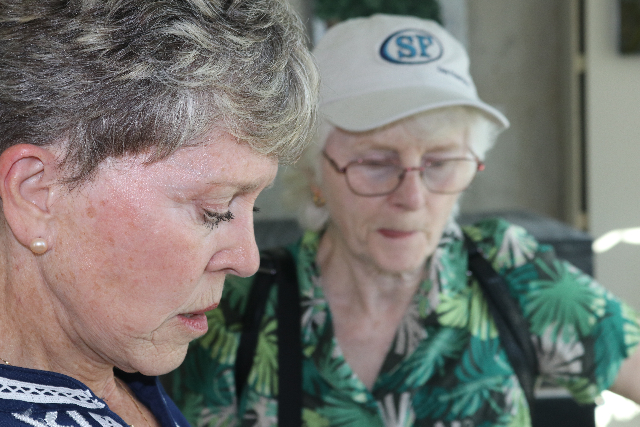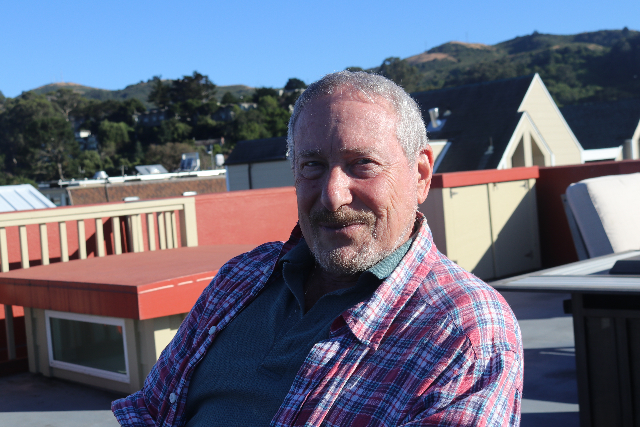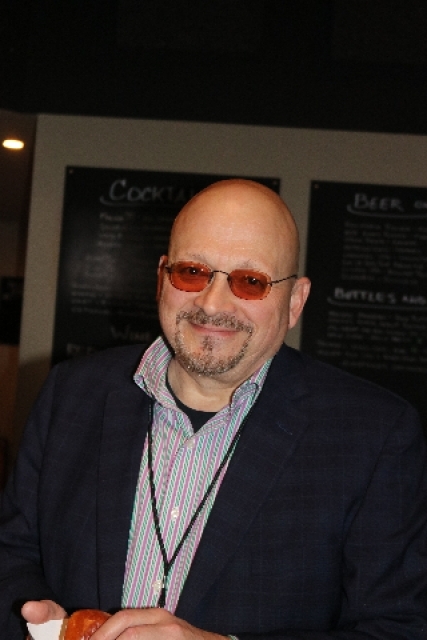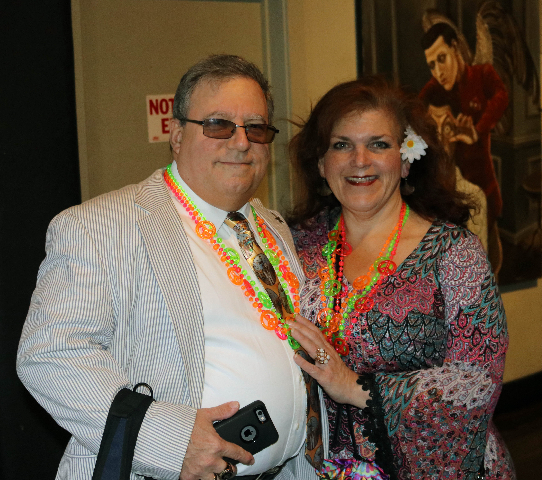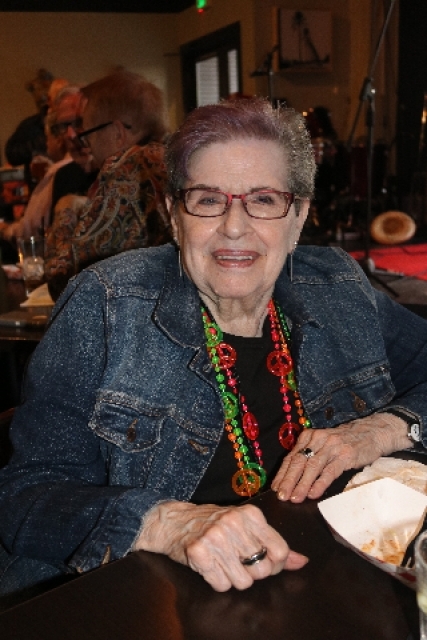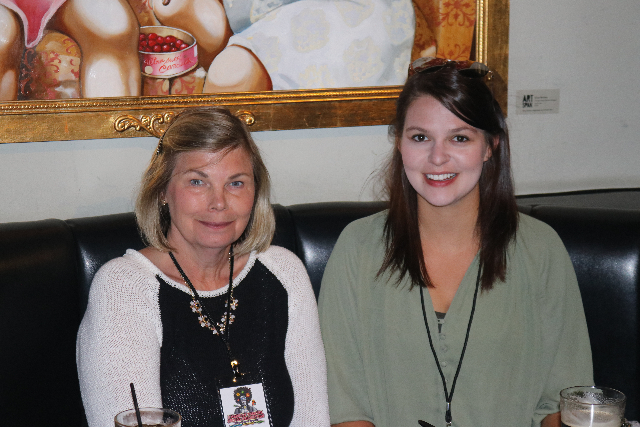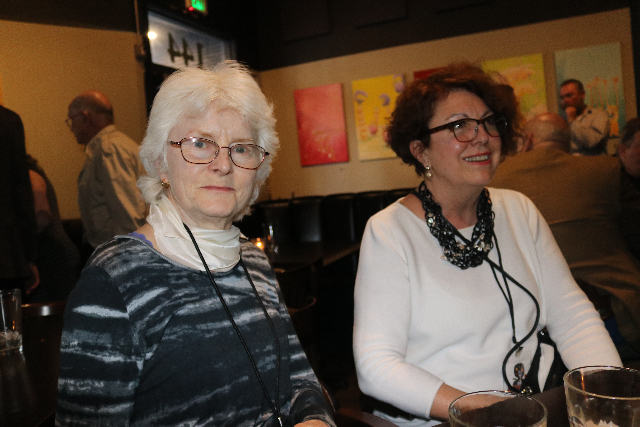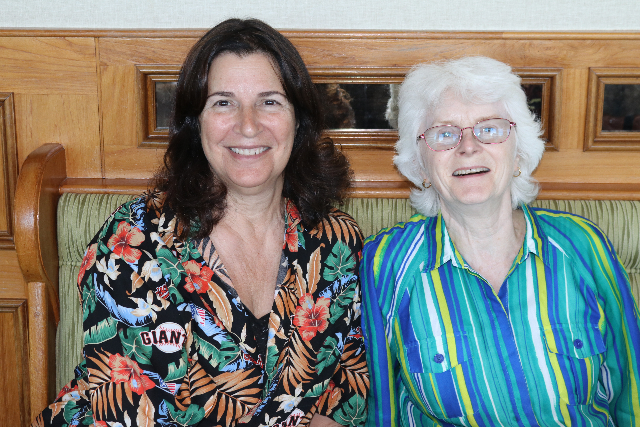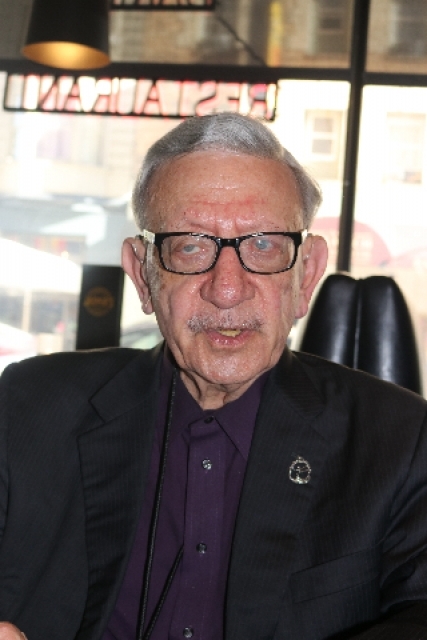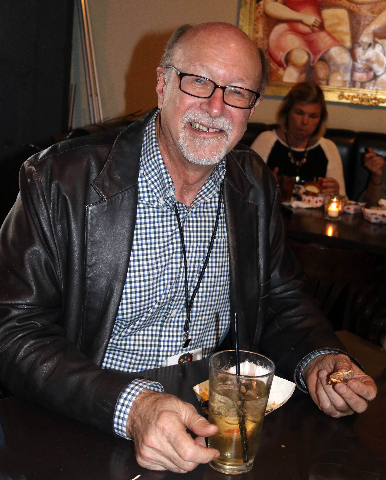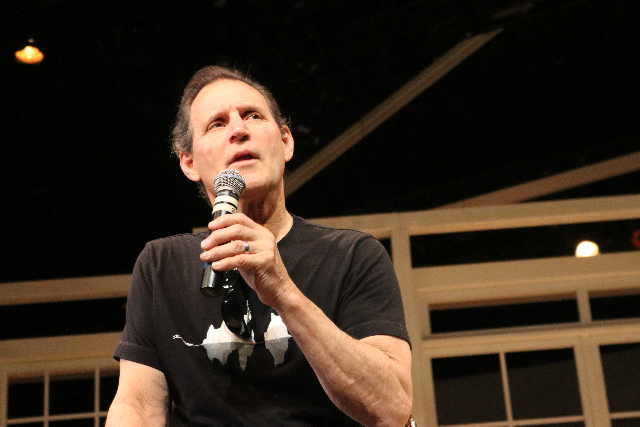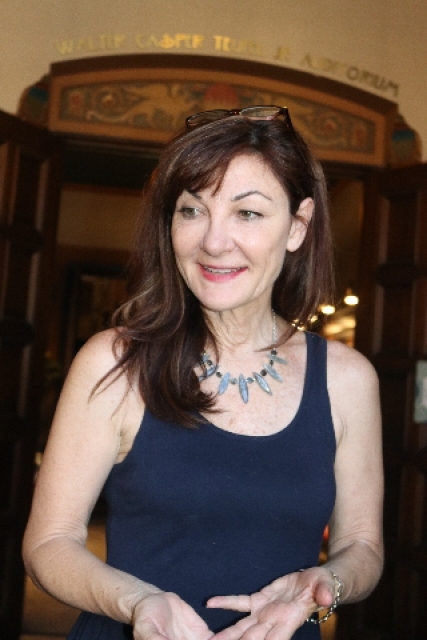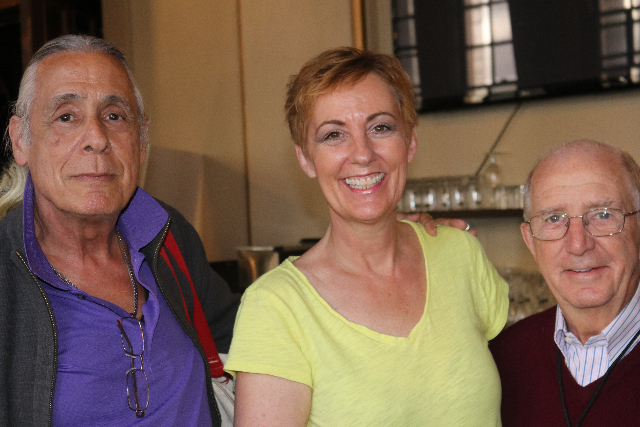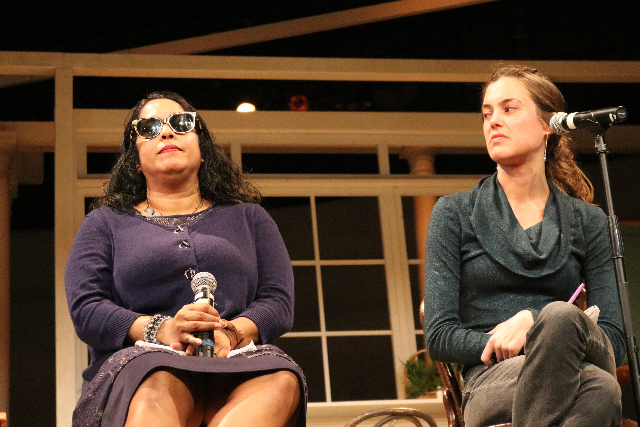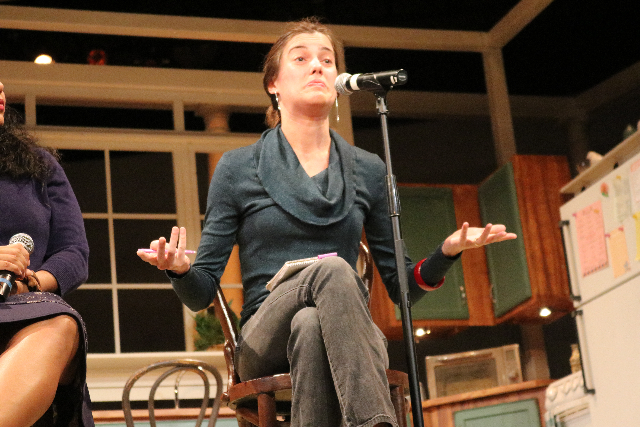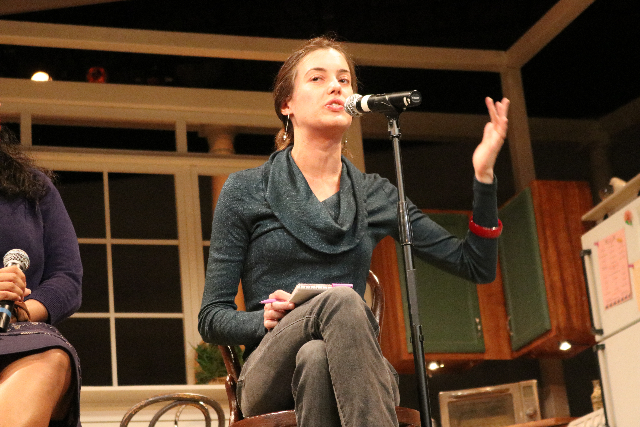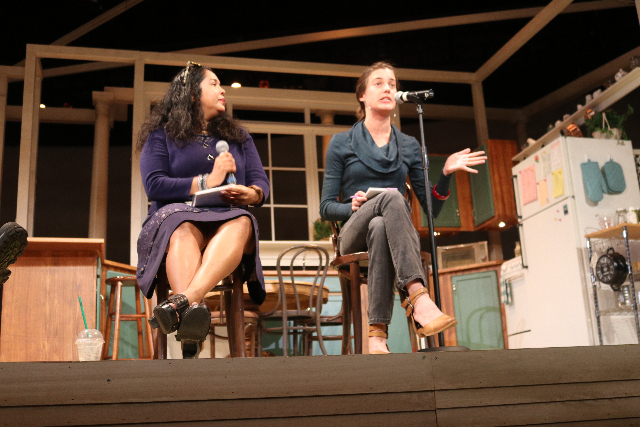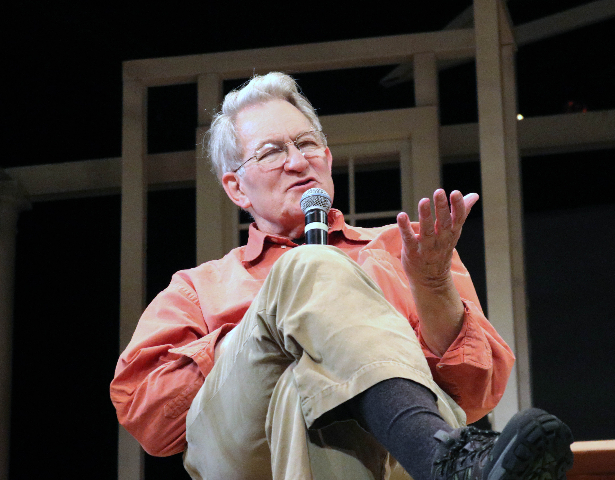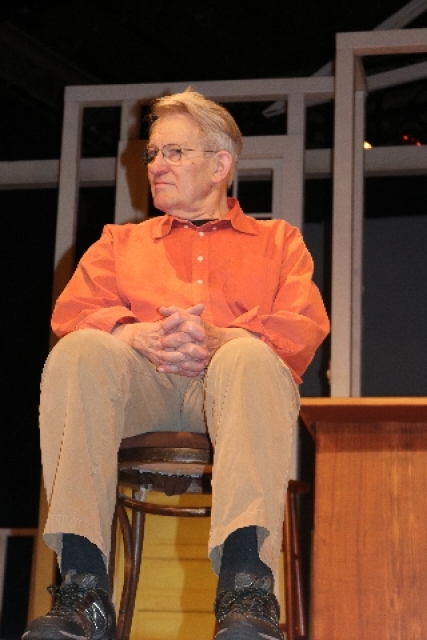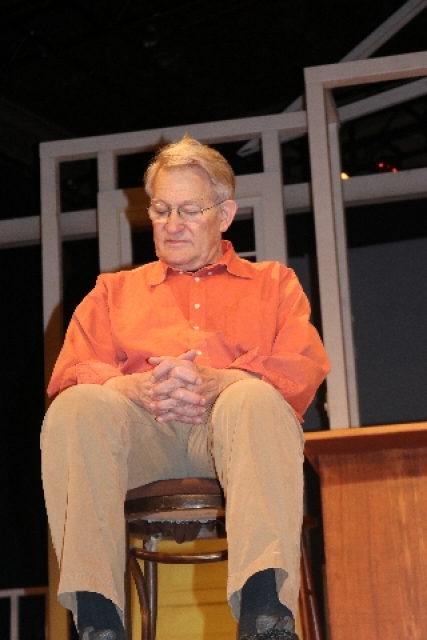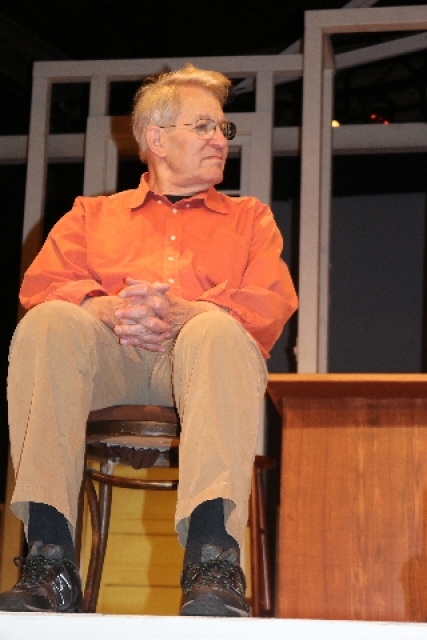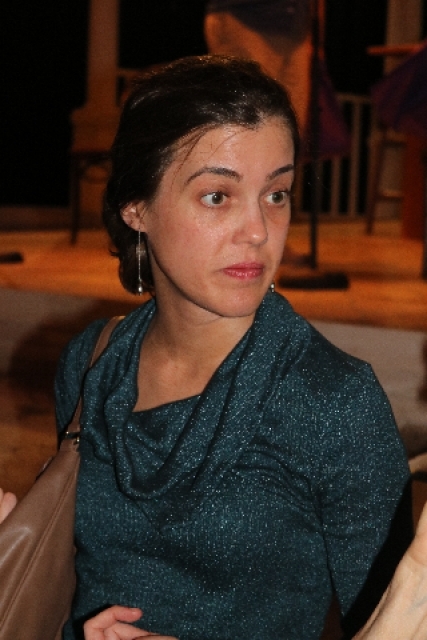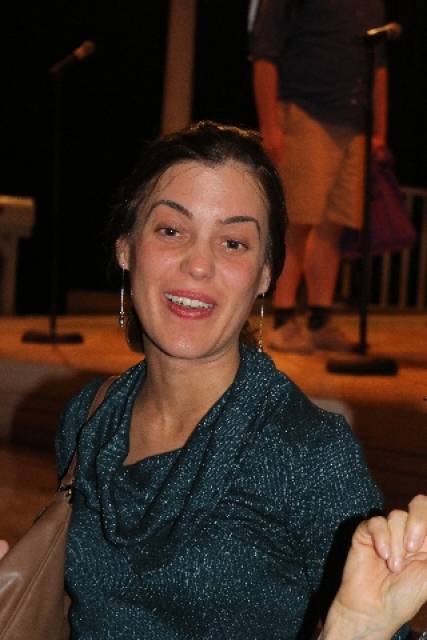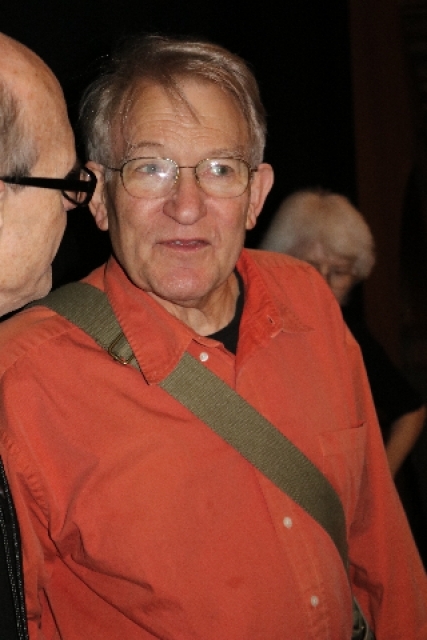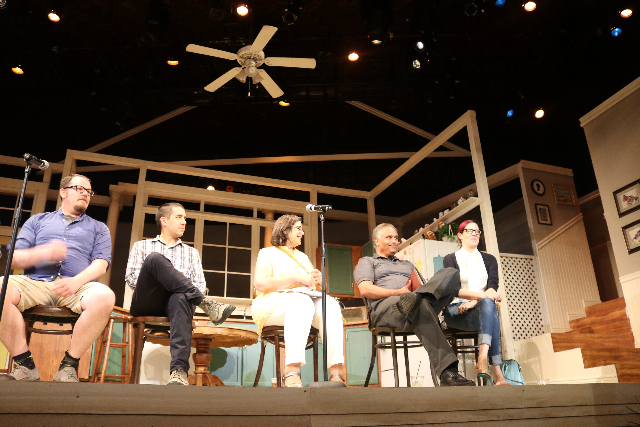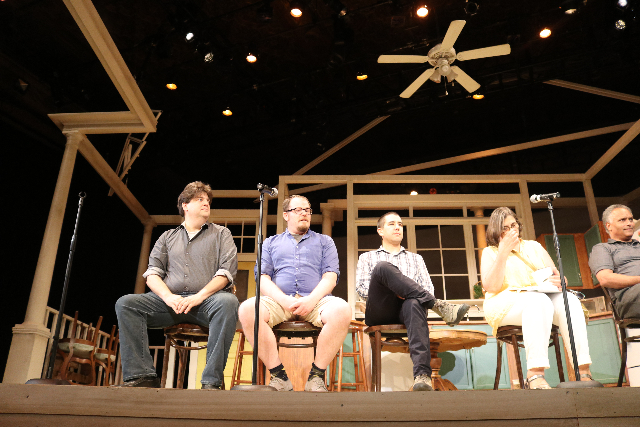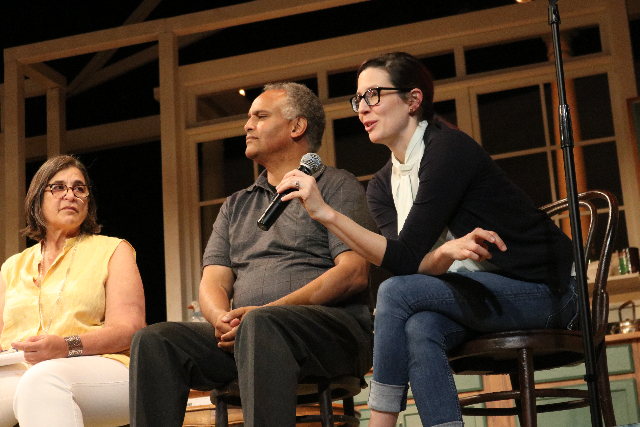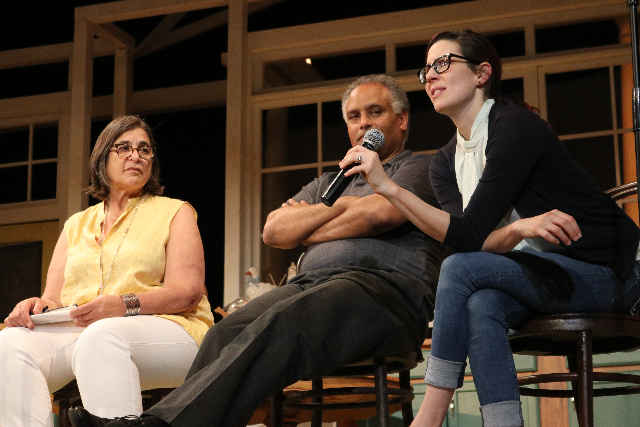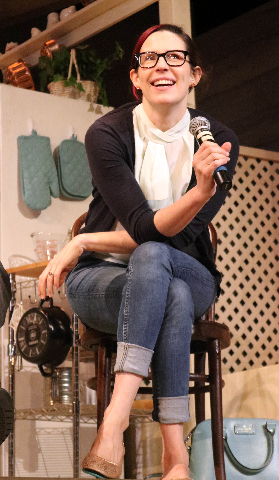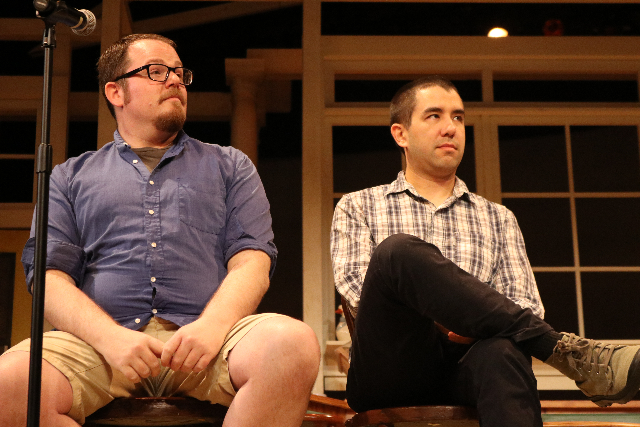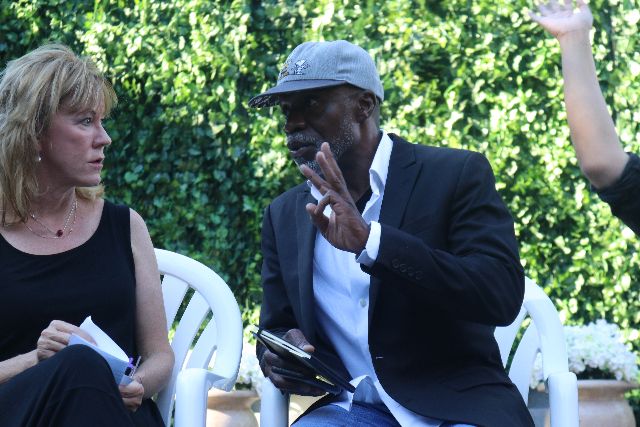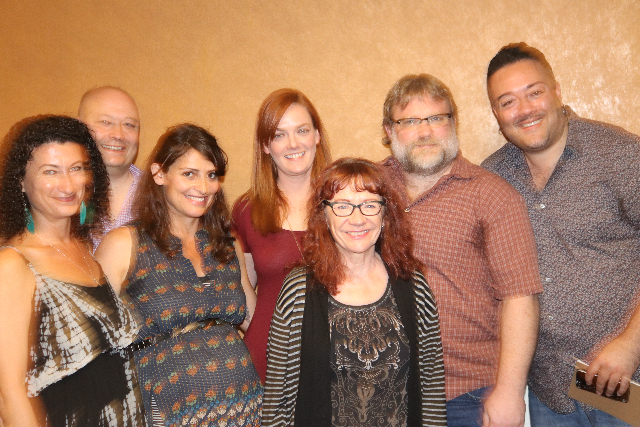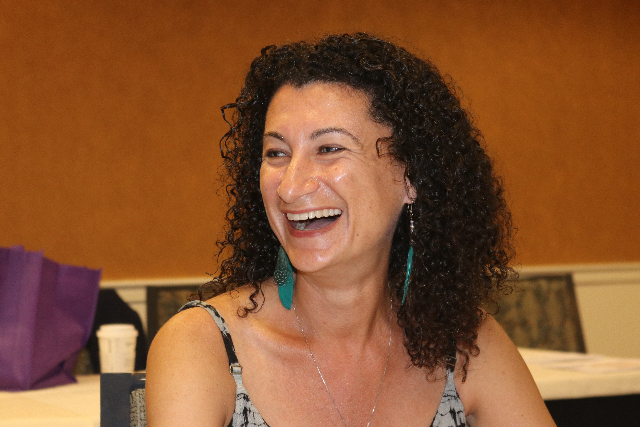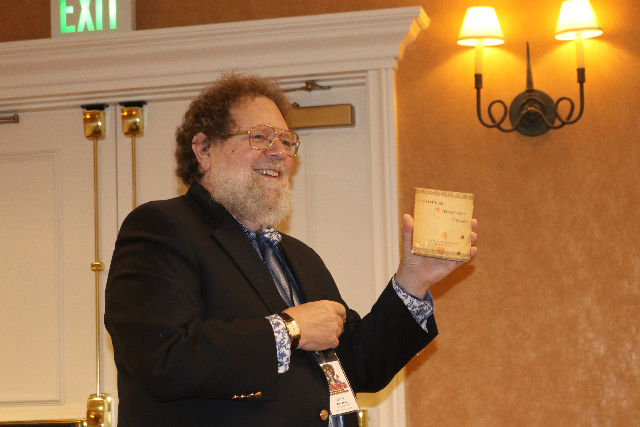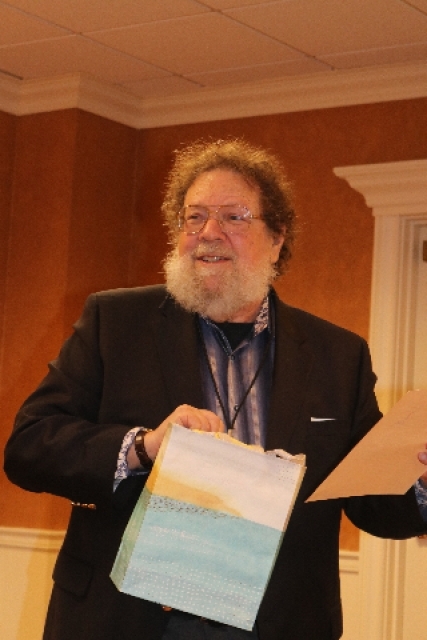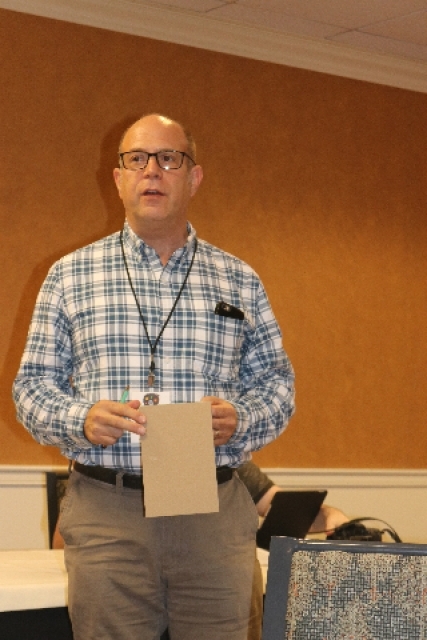Critical Condition
ATCA Conference in San Francisco
By: Charles Giuliano - Jul 04, 2017
Some of my colleagues started covering Broadway as teenagers.
Nowadays with social media everyone, more or less, is a critic. Some enthusiasts text reviews and post illicit I Phone shots before the curtain comes down. In the case of the ill-fated Spiderman, for example, bloggers had the word out on a show that couldn't be fixed, while producers extended previews delaying the official press opening.
That unchecked tsunami of blogs and posting has blurred the boundaries of criticism as a profession. That used to mean writing for a newspaper or journal and getting paid to do so.
Major markets that formerly supported several daily and weekly publications now struggle to maintain one or two. Given the proliferation of online posting, however, there is more rather than less information about the arts.
With such a glut it is up to readers/ consumers to decide who and what they opt to read or listen to. With orchestra seats in the hundreds of dollars for Broadway shows, and expensive for regional theatres, the primary concern is whether there is sufficient bang for the buck.
It begs the question of the difference between writing reviews or engaging in critical thinking. Too much of the blogosphere is as gush from unchecked but influential fans. Mostly it is free marketing with readers urged to rush to get tickets. Theaters embrace this trend and there has been talk of setting off texting sections.
In the information age readers have little patience for long form analysis of the work at hand. There is relatively little interest in context both historical and contemporary.
Most of us become critics by default often when all else fails. Many start out in some aspect of theatre as actors, playwrights, directors, box office managers, designers, stage managers, PR and marketing. Or, having enjoyed theatre all of their lives, there is a late transition from another career as doctor, lawyer, broker, administrator or housewife.
There is a conceit that all that prior activity, job and life experience has provided a skill set that uniquely provides invaluable insights in writing about theater.
Several years ago, at the urging of friend and NY critic Edward "Fast Eddy" Rubin, I joined the American Theatre Critics Association. Astrid and I attended our first annual conference in Chicago. There are some 200 theatre companies in the Windy City and we got a rich sample of them.
Each conference has a keynote speaker in the series Perspectives in Criticism. With beginners luck we heard the yet to be surpassed Terry Teachout of the Wall Street Journal. He makes several visits to the Berkshires each summer. I got to interview him when he was developing a play "Satchmo at the Waldorf" with John Douglas Thompson for Shakespeare & Company.
In New Orleans in 2015, to my utter surprise, I was nominated for the board (Ex Com) by Rubin. I am now on the ballot for a third term.
That meant two days, 10 to 4, attending Ex Com and Foundation meetings in Frisco.
There was an "early bird" party in The Hamilton Ballroom on Monday evening. It is the gorgeous art deco space of a once fashionable hotel. The reception was hosted by Robert Sokol, one of three conference organizers. The others were Susan Cohn and Brad Hathaway. The entertainment was the screening of a brutally awful film "Theatre of Blood" in which a disgruntled ham actor, Vincent Price, kills off the critics one by one. I snored through it.
On Tuesday, Hathaway drove a couple of us over the Golden Gate Bridge to the Marin Theatre Company. Jasson Minadkis, the artistic director, generously provided space for our meeting. After which Brad and Teddie Hathaway hosted a reception on their Sausalito house boat. Then we returned to the theatre for a performance of The Legendary Georgia McBride.
Through Sunday there was a dense and insightful program of performances, meetings, panel discussions and workshops. To make that possible the organizers made an enormous effort to cut deals, call in favors, and sign their names in blood. Generously providing so many tickets for some 80 plus conference attendees Bay Area theatre companies proved to be remarkable hosts. For small venues we were offered a choice from more than a dozen shows.
As a group, we attended at matinee of the Jen Silverman play The Roommate at San Francisco Playhouse. Starting there in the morning we attended Perspectives in Criticism: The Career Continuum. That was followed by The Empathy Gym with SFP's artistic director, Bill English then a panel of San Francisco playwrights The Play's the Thing; The Career Continuum.
Gathering at the Powell Street station on Friday we were guided to BART, a commuter rail, and taken to California Shakespeare Theatre (Cal Shakes). There was a panel Re-Viewing Shakespeare: The Second 400 Years. Following a picnic dinner, we enjoyed a performance of As You Like It under a canopy of stars before hopping BART back to Frisco.
In 2006, when we sold our Boston home and moved full time to the Berkshires, Astrid and I founded Berkshire Fine Arts. From its inception the mandate was not just to post our own work but to provide a platform for other contributors. We post and repost a number of ATCA members representing national theatre criticism. This is significant considering the quality of regional theatre, unique productions and world premieres.
Early on I interviewed the late Nicholas Martin then artistic director of Williamstown Theatre Festival. With a twinkle and smile he told me in a soft voice that "When you have written a hundred reviews you will start to be a theatre critic." Since then many actors, playwrights, artistic directors, and critics have taken me to school.
How I miss those long Chinese buffet lunches that I enjoyed with the recently deceased critic Larry Murray. One of his last acts was to found the annual Berkies, theatre awards for the Berkshires. We often critiqued our work, and deconstructed what was going on in the creative community.
We shared a dialogue about the craft of criticism and how to improve our efforts. After positing reviews, particularly of controversial shows, I couldn't wait to hear his take on them.
It's why ATCA conferences are so meaningful. Over the past few years they have been an invaluable resource.
At the highest level, including scribes for major publications, it is readily evident that many critics don't really change. There are basic templates and paradigms that over time become all too transparent and predictable. Currently, for example, there is controversy in Chicago responding to a review by a print journalist, Heddy Weiss, that is widely regarded as insensitive.
While protected by free speech and freedom of the press, like everyone else in a democracy, critics are accountable for their statements.
Our nation and culture is under attack. Artistic directors and producers often program to the zeitgeist. That can lead to mixed results. Beyond good intentions theatre must be evaluated with criteria as ancient and indelible as Aristotle's Poetics. There can be backlash when critics don't go with the flow.
Nobody can quite nail down the quid pro quo between comped tickets and critics providing fair and balanced coverage. Companies are not required to comp critics. What happens when they don't? The understanding is that something of value is exchanged when theatres provide tickets to the media. In an era of the decline of print media, shrinking news rooms and ever more limited budget and staff, they need the on line media.
As Lily Janiak of the San Francisco Chronicle told us her paper "Sends two reporters for an away game but likely won't pay for me to write about the Oregon Shakespeare Festival." Teachout of the Wall Street Journal is the only major critic who regularly covers regional theatre. The New York Times has all but eliminated the radius of its coverage. That's a game changer as we won't see those critics in the Berkshires this summer.
The organizers of the San Francisco conference provided us with richly diverse professional discourse. Their multi-valent approach encouraged us to write about theatre from unique vantage points.
In addition to the usual suspects we were provided with panels of travel writers, sharing their tricks of the trade, as well as a session with the technical artists; set and costume designers, prop masters, lighting and sound designers. The question was framed in an interesting manner. What did these specialist hope to see in how we cover them?
When someone designs a realistic set or contemporary costumes critics tend not to comment. To wear everyday clothes, or view a contemporary interior, seems like a non decision. But it comes out of discussion as a work is developed. After statements from the panel we broke up into workshop groups. During the week it was fascinating to see works by those designers. I was struck by the very different approaches of scenic designer, Nina Ball, for a naturalistic The Roommate and elaborately kinetic fantasy/ surreal design for As You Like It.
The highlight of conferences is a keynote address Perspectives in Criticism.
This time, however, there was a departure from the norm. Instead of single speaker there was a dialogue between the recently retired San Francisco Chronicle critic, Robert Hurwitt, and Laniak, who was appointed to replace him. Karen D'Souza, theatre critic for Mercury News and Bay Area News Group, served as moderator.
In their changing of the guard exchange there was a dichotomy between the venerable voice of experience and that of youth and energy. After serving for four decades one extrapolates that Janiak, like the Pope or a Supreme Court Justice, has been elevated to a lifetime position. That assumes that The Chronicle will be around for another generation and that her beat will survive more rounds of staff cuts.
Hurwitt spoke of when there was a lively mix of papers both daily and afternoon with the Chronicle and Examiner. Reviews were filed asap and there was pressure and prestige to make or break productions based on competition for the first reviews.
In bygone days the beat was covered by first and second string theater critics as well as another who wrote about nightclubs, revues and cabaret. There was a distinction between critics who wrote reviews and staff reporters who did interviews, features and previews. In most markets, including San Francisco, that has devolved into a single writer.
Now daily papers also have on line editions and a social media presence. With dismay, Hurwitt commented that it meant that not only did he have to do interviews but simultaneously make video recordings. He described that as another factor that induced him to retire.
An undergraduate at Yale with a major in theatre, Janiak discussed various unsuccessful creative ventures. A friend and mentor suggested that she might try writing about theatre and set her up with a publication. She holds an MA in drama from San Francisco State.
Having been on the job for just over a year readers of her reviews comment that she can be "snarky" or "tough but fair."
Because keynote speeches are partly funded through foundation money they are open to the public. Local theatre professionals were in the audience hoping to gain insights to a critic who will cover their work and impact careers.
She embraces social media and walked on stage wearing a biking helmet. That's how she gets around Frisco which, given it hills, is saying something.
Janiak engages in exchanges with readers responding to reviews. In once such instance she discussed an e mail thread with a black playwright about his work. Assuming that it was a private conversation she opened up to him. Against her objection, and that of the publication, an excerpt of the dialogue was posted on the theatre's website.
As a public person she came to realize that any remark she makes can be taken out of context and posted. It's why most of us don't respond to negative comments about our reviews. Even with friends it is best to keep professional dialogues off the record.
There was much to hear and absorb in the dialogue between Hurwitt and Janiak. Unfortunately, D'Souza overstepped her role as moderator. She acted as the third voice on stage even when, eventually, there was too little time for questions from the audience. The speakers, however, stuck around and engaged in conversations with members of the audience.
We were duly impressed by the competence and accomplishments of the five panelists of The Plays the Thing: Criticism and New Work. We heard from Stuart Bousel, Christopher Chen, Lauren M. Gunderson (the keynote speaker for ATCA/ Louisville), Aaron Loeb, Glen Gene Sullivan, and moderator Amy Muller. They discussed the challenges of having their works produced locally in a thriving theatre community as well as in New York and nationally.
Amazingly, in a panel at Cal Shakes we heard from the artistic directors of five companies dedicated to presenting the works of Shakespeare. They were: William J. Brown 11, of the Arabian Shakespeare Festival, J. Peter Callender, of African-American Shakespeare, Lesley Schisgall Currier, of Marin Shakespeare Company, Rebecca Ennals of San Francisco Shakespeare Festival, Eric Ting of Cal Shakes and moderator, Dr. Philippa Kelly. We have discussed that panel in a previous review of Cal Shakes.
We came away with wonderful memories and insights. Again we wish to applaud the enormous efforts of the organizers Susan Cohn, Brad Hathaway and Robert Sokol. We are looking forward to New York in November and another fabulous lunch with Broadway stars at Sardi's. See you then.

